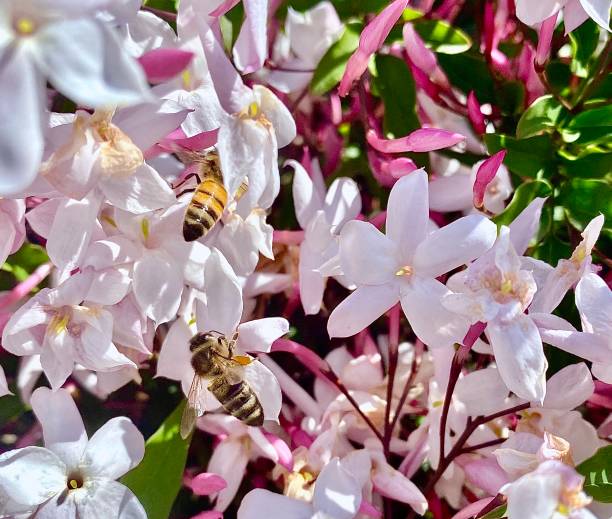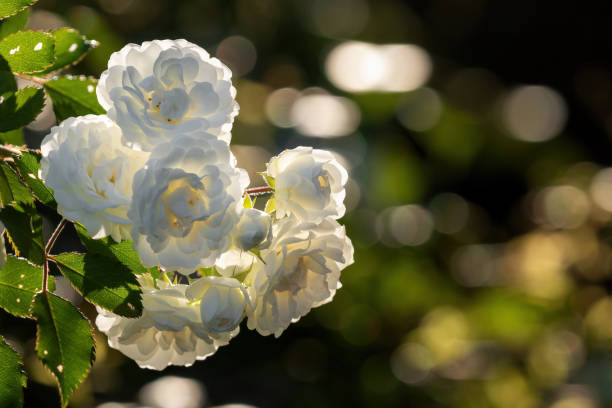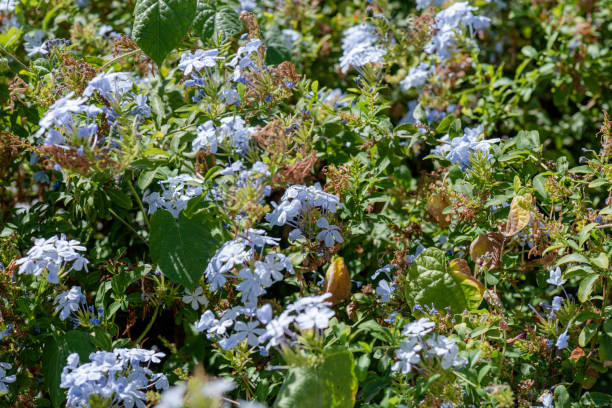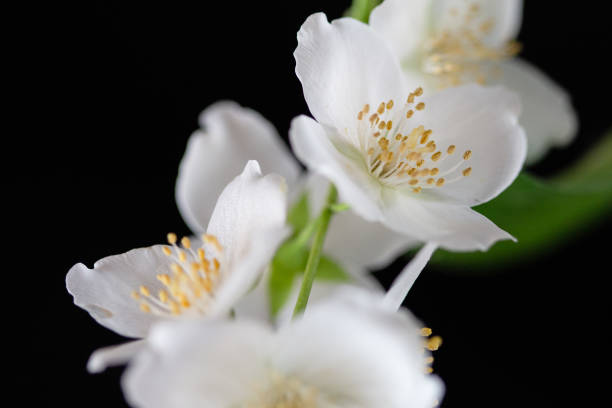The Benefits of Jasmine Plant Fertilizer: What It Is & How to Use
Jasmine is a perennial that can be grown in gardens in USDA plant hardiness zones 8 through 11. It has fragrant, white, star-shaped flowers. It can cover the ground, climb walls, or adorn arches and pergolas. This evergreen, bird-attracting vine bursts into bloom during the spring and summer. It is adaptable to a variety of environments. This vine is a beautiful addition to any garden as it is properly cared for. Fed with the proper fertilizer at the appropriate times.
One of the most well-known scented flowering plants globally is characterized by its consistent blooms, divine fragrance, and attractive glossy green leaves. Jasmine plants evoke images of exotic and sunny days in the garden and warm, sultry evenings. Plants that have been well-cared for and fed regularly produce beautiful blooms. But what should you give Jasmine to eat? By reading this article, this article teaches the secrets to thriving floral plants and how to fertilize Jasmine properly.

Table of Contents
Does Jasmine Plant Need Fertilizer?
In most cases, jasmine plants in the garden do not require additional fertilizer unless they are growing in soil deficient in nutrients. It is deficient in nutrients. Having yellow leaves on your jasmine plant may signify that it is time to fertilize it.
What Fertilizer Should You Use on a Jasmine Plant?
Fertilizers can be in the form of organic or inorganic. Organic fertilizers are made from natural ingredients, while inorganic fertilizers are made from synthetic materials.
Organic fertilizers are preferable because they are better for the environment since they don’t contain harmful chemicals. However, organic fertilizers may not be as effective as inorganic fertilizers when growing jasmine plants.

Is There a Particular Type of Fertilizer That Works Best for Jasmine?
Jasmine Plant Fertilizer
If you’re trying to encourage a new plant to grow or if you’re trying to coax flowers from an already-established plant, the answer is a little different. A balanced to slightly higher nitrogen fertilizer is recommended to encourage lush green growth. This fertilizer will give the plant everything it needs to promote lush, healthy growth. However, you should choose a fertilizer with higher phosphorus content for the flowers. Potassium is required for root development. To get the best results when growing young seedlings or cuttings, look for soil with higher nitrogen and potassium levels than the one you are currently using. For already established plants, try something like a 7-9-5 ratio, as this will encourage the plant to flower and maintain its growth pattern.
Homemade Compost
This mixture is one of Jasmine plants’ most effective organic and homemade fertilizers. Organic compost that has been properly decomposed can provide all of the nutrients required by the Jasmine plant. As a result, topdressing the soil with this mulch produces better results over time. You can easily prepare it with ingredients you already have in your home. Composting should be done so that the ratio of carbon to nitrogen is optimal.
Furthermore, it should have a higher carbon content and a lower nitrogen content as a general rule. Aerate your pile by starting with bare earth and then adding a layer of twigs on top of that. After that, arrange everything in these layers. Keep it slightly moist and covered with plastic wrap. With a shovel, thoroughly combine the ingredients.
Various carbon-containing materials can be found in nature, such as:
branches, dried leaves, peelings, bits, and pieces of wood, bark dust, stalks of corn, eggshells, straw, peat moss, and even wood ash.
Food waste, lawn clippings, kitchen waste, manure, and even green leaves are all excellent nitrogen sources.
Homemade Compost Tea
To make the compost tea, fill a 4-5-liter bucket halfway with compost and add one shovelful of compost to the bucket. You can either DIY your own compost or purchase it from a store. Fill the bucket halfway with water and thoroughly mix the contents. Allow 2 to 3 days for it to sit. Continue to stir the contents between each section. Then apply 2 cups of tea near the roots of the Jasmin plant twice a week, for a total of 4 cups per week.
Coffee Grounds
The jasmine plant prefers soil with a pH range of 5-8, slightly acidic. As a result, adding coffee grounds to your diet may be the best option. Coffee grounds are high in nitrogen, magnesium, and potassium, all of which help raise the soil’s acidity. Spread the coffee grounds out on a sheet and let them dry overnight. Then, sprinkle these ground ingredients around the Jasmine plant’s rootball.

How to Fertilize Jasmine
Before deciding on a method, evaluate your soil, the plant’s condition, and the plant’s location. A thick layer of organic mulch applied around the root zone will, in most cases, leach and compost into the soil slowly, feeding the plant’s roots.
Suppose your plant does not produce many blooms but does have thick, lush, leafy growth. In that case, it is most likely receiving enough nitrogen but growing in soil deficient in phosphorus. The middle number of a jasmine plant fertilizer should be as high as possible. The middle number represents the ratio of phosphorus in the formula. Potted plants are confined and unable to access additional nutrients other than those already present in the soil. Every two weeks during the spring and summer, you must add an excellent plant food solution in the form of a half-dilution of the original solution.
During the fall and winter, do not fertilize. Granular slow-release foods are ideal for the gardener prone to being forgetful and forgetting to feed regularly. Fill the top 2 inches (5 cm) of soil with the grains and water it in. Scratch the grains into the soil around the edges of the root zone. Over time, the granules melt into the soil, releasing the nutrients that the plant requires slowly and steadily. To avoid overfeeding and health problems, be sure to carefully read the directions to determine how much to feed your plant based on its size.
It is rare for plants to require additional nutrients in a rich organic growing medium. Adding compost to the top of a container once or twice a year will help maintain a healthy and nutritious amount of organic material in the container. If you use chemical fertilizers on your container-grown Jasmine, remember that too much of a good thing can be harmful. It is critical to note the presence of chemical fertilizer salts and their accumulation. Excess fertilizer causes salts to build up in the soil, which can burn the roots of plants and even cause them to die.
If the soil is poor, plants growing in the ground may also benefit from additional food being added at the appropriate time. When fertilizing jasmine plants in the spring, amend the soil with mulch. Also, you can use organic mixtures or a slow-release granular or liquid dilution of jasmine plant fertilizer to achieve the best results.
Best Time To Feed Your Jasmine
If you live in moderate climate areas, the best time to fertilize Jasmine is in the spring or late winter. With foliar formation, healthy roots, pest and disease resistance, and, of course, flowering, the goal is to provide the plant with all of the nutrients it requires to thrive. When it comes to plants, phosphorus is the macronutrient responsible for their fruiting and flowering. True Jasmine, or Jasminum officinale, should not be confused with star Jasmine, a different Jasmine species. The true jasmines are plants that have an intoxicating fragrance. Proper feeding will enhance the heady scent while also assisting the plant in regularly producing a profusion of aromatic blooms.

How Often Should You Feed Your Jasmine Plant?
You do not have time for a weekly feeding schedule with your flowering plant to grow healthy and beautiful like they do when they are in the garden. However, once a month or every other week is all they need to feel their best!
Benefits of Using Homemade Fertilizers
- You can improve the soil texture of your plant.
- They’re safe to use and help keep diseases and pests at bay.
- Easy to use and safe for our hands, these products are an excellent choice
- The use of homemade fertilizers eliminates the potential for plant damage.
- As a result, it aids in retaining water.
Is Growing Jasmine a Difficult Task?
The care of a jasmine plant isn’t difficult, but it does necessitate constant monitoring. Vine training must begin at an early age when the vines are still very young. In the spring, fertilize the plant just before new growth appears and use plant ties or weave them through trellis sections to hold it up.
Is Epsom Salt Good For Jasmine?
The answer to this question is, “Yes.”
Epsom salt improves the blooming of flowers and enhances the green color of plants. It can even aid in the development of more bushy plants. Magnesium and sulfate (magnesium and sulfur) are important building blocks for healthy plant growth. Epsom salt contains both in significant amounts.
Is Coffee Good For Jasmine?
Whether or not Jasmine likes coffee grounds. It is possible to use coffee grinds as a soil acidifier to improve the health of plants. This is a great ratio for your established planting beds’ top dressing.
